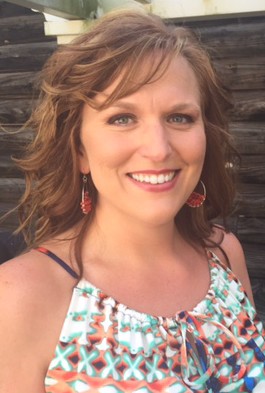The package had a return address I immediately recognized. It was a ticking bomb in my hands. That much I knew for sure.
I opened the thick, brown envelope to find an item I’d previously owned being newly replaced along with a card. I would’ve been grateful except the item was of no value to me.
The card, one of those stating how God takes care of and provides for even the birds, contained a hand-written note.
. . . the things that you lost . . .
I’ve lost friends. I’ve lost money. I’ve lost jewelry. I even lost one of my children for a few minutes at Disney World. I know what it is to be responsible for losing something valuable to me.
I hadn’t lost the item. The item itself wasn’t important, but what the old one had contained (and the new one did not) had been of irreplaceable value. To imply that I’d lost the item was to imply that it was my fault. It wasn’t. The item had been deliberately destroyed without my knowledge.
I wavered on a response and shot off an email of thanks for the replacement and the note. But I was tormented in the following days and weeks by the idea that the blame had been placed on my shoulders as “lost.” Still, I tried to defuse what I felt.
* * * * *
I peered over her head and checked the clock above the window. Time was almost up. She’d already turned toward her desk, readying her appointment calendar. I was wrapping up:
“I feel like I have nothing left to lose. I’ve lost so much over the last few years. Of course, I know I have more to lose. I still have my immediate family and my house. I know things could always be worse . . .”
The tears had started to form by then, and my counselor turned to face me again. As I paused for a breath and collected my thoughts to continue, she interrupted:
“It’s okay to feel sad. It’s okay to mourn and grieve.”
I carried on, tears starting to trickle. I can’t remember my exact words by that point, but the overall gist was that there must be something wrong with me since I’d lost so much, that maybe I’d deserved to lose even that which had been taken from me.
She looked me in the eyes and said, “There is nothing wrong with you. Quit thinking you’re broken. Think that you feel sad or angry or disappointed. You are not broken.”
Relief washed over me as the weeping washed over my cheeks.
Sometimes we need to hear someone speak aloud the words that discredit the voices that haunt us. We need someone to see in us what we know deep down is true about ourselves. We need to be able to verbalize our worst fears and have someone speak healing into the void from where they came.
Sometimes we need just one person to give us the freedom to be sad or angry or disappointed, to feel what is bubbling just beneath the surface. Sometimes we need to be reminded to grieve and mourn what we have lost or what has been taken from us, even though, yes, things could always be worse.




Bless you for expressing what most of us feel inside quite often. Twenty five years ago I escaped with the clothes on my back from a 16 year abusive husband. I lost everything of physical or material value, but I had my life. I was still living and breathing. I would soak in a hot tub of water when the fear tried to kill me off. My friends could only help so much, because it wasn’t their pain. I owned it. It was all I had left. I read Isaiah 54 over and over a thousand times for sure. Why I thought it was meant for me, I do not know. But today, when I look back on those days, I understand that I am a more compassionate woman now whose mission is to encourage others to not lost hope in the Lord. The state of anger and sadness is not permanent. Sorrow tarries for the night, but joy comes in the morning.
Rebecca, thank you for sharing your courage with me. You are a brave soul! I’m so glad you found your hope and joy.
Thanks for yet another moving post. Once we unshackle God from our nice, neat theological systems, God actually models for us expressions of hurt, sadness, anger. These are not “fleshly” (though we might express them in fleshly ways) expressions of our brokenness but are something of God within us all. Additionally, it truly is freeing when we begin to understand what we are, and are not, responsible for. Shalom, my sister.
I’ve been thinking lately that Christianity places a ton of responsibility on people that doesn’t necessarily belong to them. I keep thinking of writing about this. Thanks for the spark to do so.